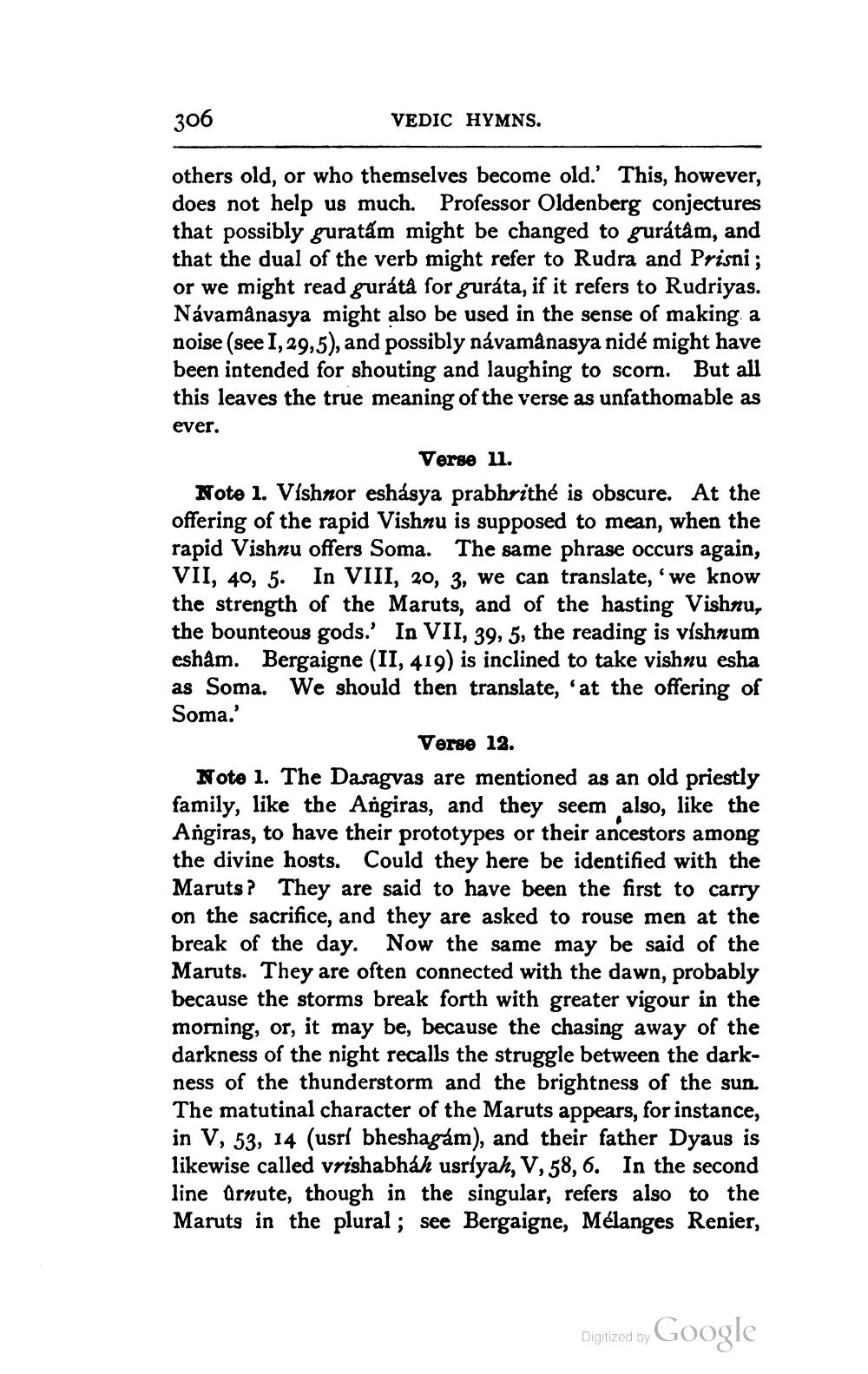________________
306
others old, or who themselves become old.' This, however, does not help us much. Professor Oldenberg conjectures that possibly guratấm might be changed to gurátâm, and that the dual of the verb might refer to Rudra and Prisni; or we might read gurátâ for guráta, if it refers to Rudriyas. Návamânasya might also be used in the sense of making a noise (see I, 29,5), and possibly návamânasya nidé might have been intended for shouting and laughing to scorn. But all this leaves the true meaning of the verse as unfathomable as
ever.
VEDIC HYMNS.
Verse 11.
Note 1. Vishnor eshásya prabhrithé is obscure. At the offering of the rapid Vishnu is supposed to mean, when the rapid Vishnu offers Soma. The same phrase occurs again, VII, 40, 5. In VIII, 20, 3, we can translate, 'we know the strength of the Maruts, and of the hasting Vishnu, the bounteous gods.' In VII, 39, 5, the reading is vishnum eshâm. Bergaigne (II, 419) is inclined to take vishnu esha as Soma. We should then translate, 'at the offering of Soma.'
Verse 12.
Note 1. The Dasagvas are mentioned as an old priestly family, like the Angiras, and they seem also, like the Angiras, to have their prototypes or their ancestors among the divine hosts. Could they here be identified with the Maruts? They are said to have been the first to carry on the sacrifice, and they are asked to rouse men at the break of the day. Now the same may be said of the Maruts. They are often connected with the dawn, probably because the storms break forth with greater vigour in the morning, or, it may be, because the chasing away of the darkness of the night recalls the struggle between the darkness of the thunderstorm and the brightness of the sun. The matutinal character of the Maruts appears, for instance, in V, 53, 14 (usrí bheshagám), and their father Dyaus is likewise called vrishabháh usríyah, V, 58, 6. In the second line ûrnute, though in the singular, refers also to the Maruts in the plural; see Bergaigne, Mélanges Renier,
Digitized by Google




